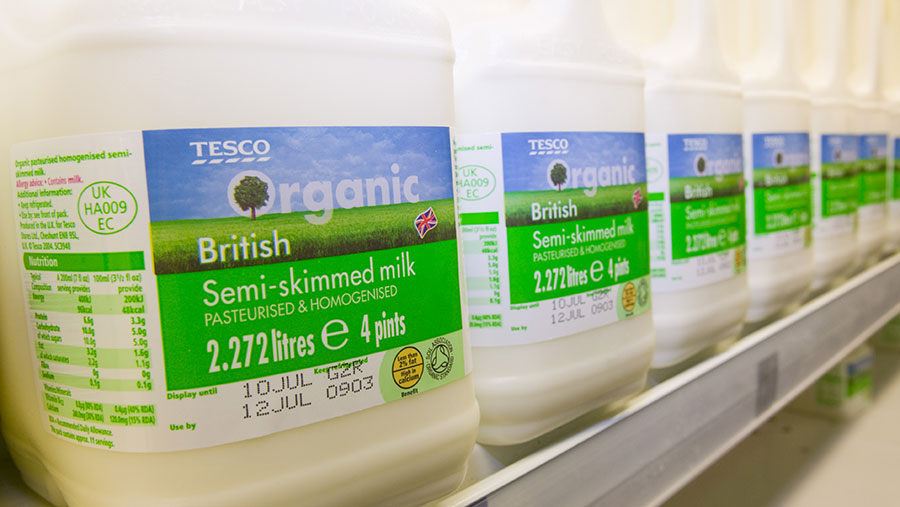Organic is high on milk processors’ list of priorities for 2018
 © Global Warming Images/REX/Shutterstock
© Global Warming Images/REX/Shutterstock Three of the key processors of organic milk are optimistic about the future of the sector, delegates at the inaugural Dairy Tech event were told on Wednesday (7 February).
Graham Wilkinson, senior director of member relations at Arla UK, said their 2020 target was to double their organic business and be the number one milk brand.
He said despite a 1.6% fall last year following years of double-digit growth in their organic sector, it remains a “big bet”.
“Organic is a global trend and there is a huge amount of opportunity here in the UK,” said Mr Wilkinson, but he said getting the messaging right and not cannibalising other products were key factors.
His comments tie up with the co-op’s recent acquisition of the dairy arm of Yeo Valley.
Rob Hutchison, Muller agriculture director, said the rebrand of Muller organic milk led to an increase in sales of 4.5%.
Talking about the processor’s plans for 2018, he said: “We’re investing a significant amount in our capability of products and organic is a key part of that.”
Long-term confidence needed
Managing director of The Organic Milk Suppliers Cooperative (Omsco), Richard Hampton, said long-term confidence is needed in the industry, especially because conversion is getting tougher in the UK.
He said the way the dairy industry is moving makes it a bigger step to convert long term.
“It’s tougher to convert as conventional becomes more intensive, housed and generally under pressure.”
He believes this is especially so, given that there is more generous conversion grant funding in the EU, which the UK will lose access to after Brexit.
“My view is the market should pay,” Mr Hampton said. “The organic farmgate premium should be sufficiently high.”
“It’s not all about money though. There is confidence in long-term market growth.”
Omsco, who offer a premium of about 12-13p/litre, are looking at diversity in the industry to secure more demand in order to level prices, such as looking at other marketplaces and niche product areas.
Mr Hampton told delegates that in all of the markets where there’s opportunity for growth, there is a low market penetration, which is positive for the sector.
